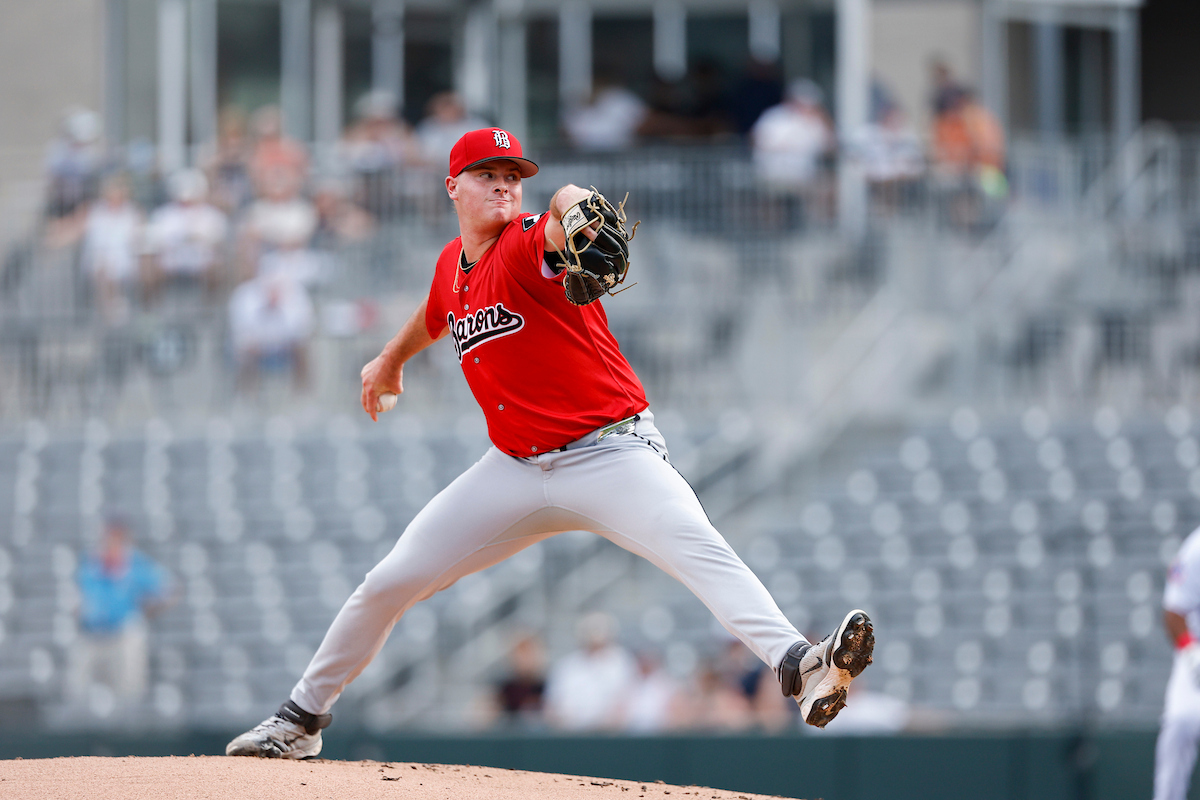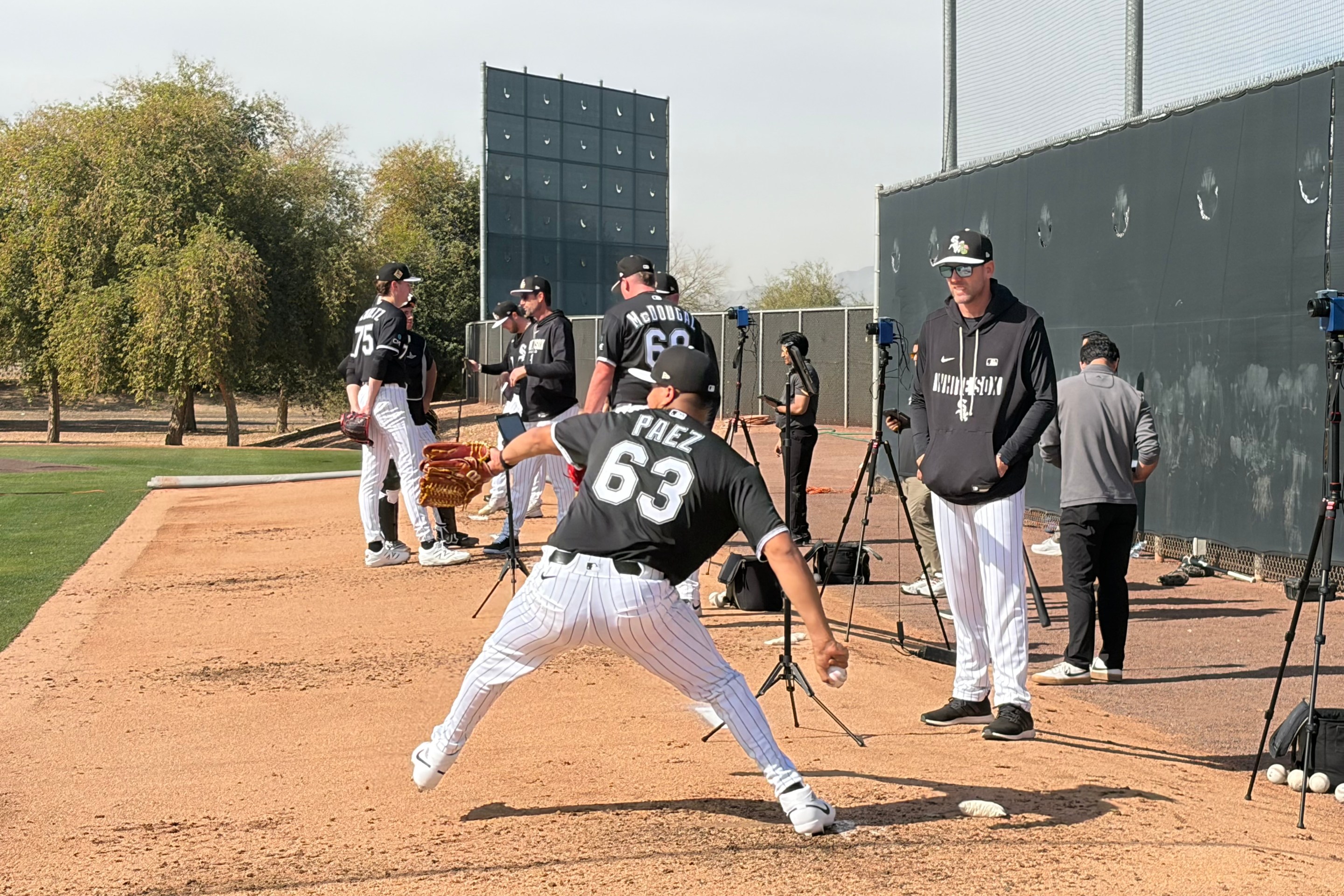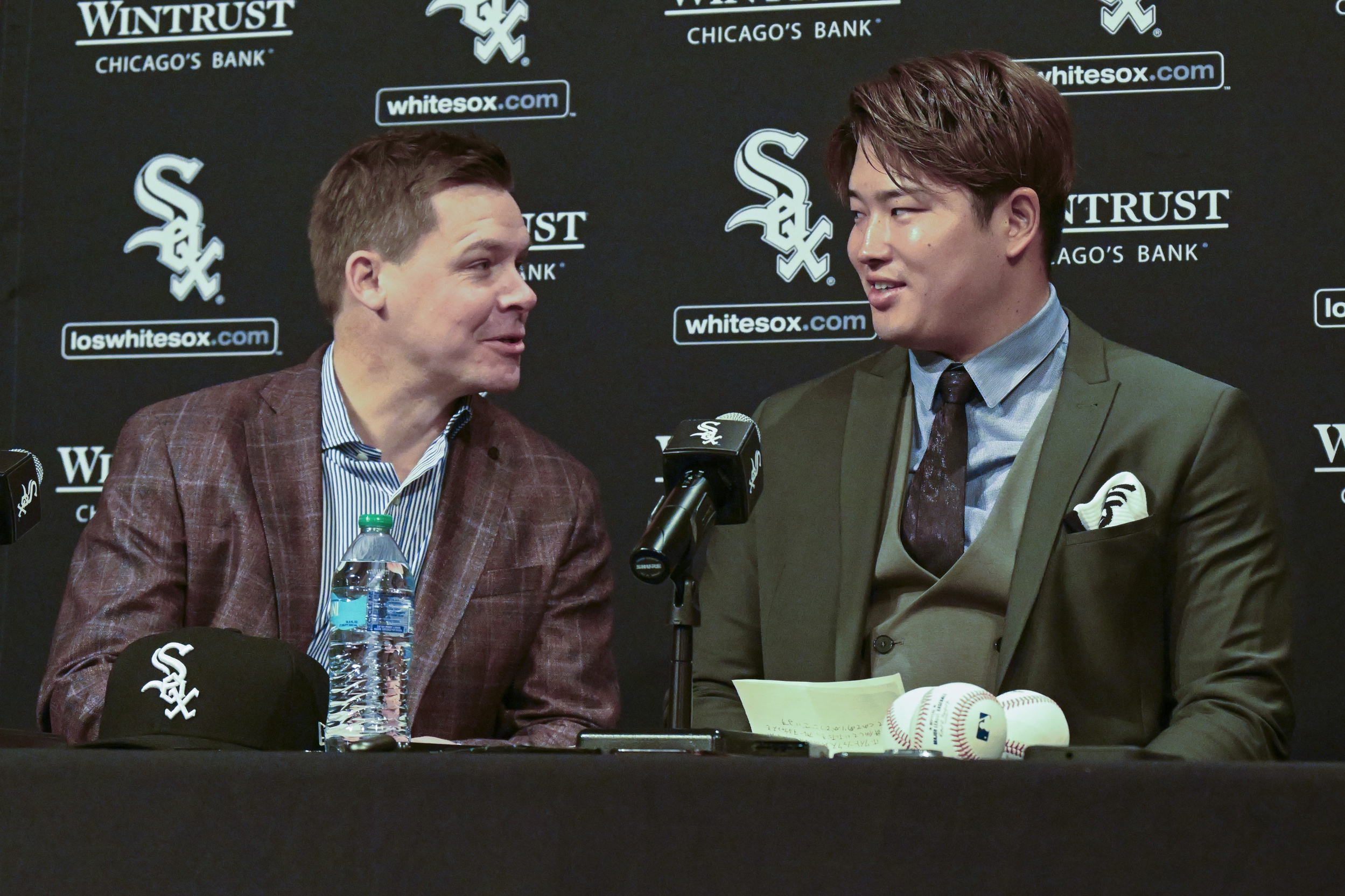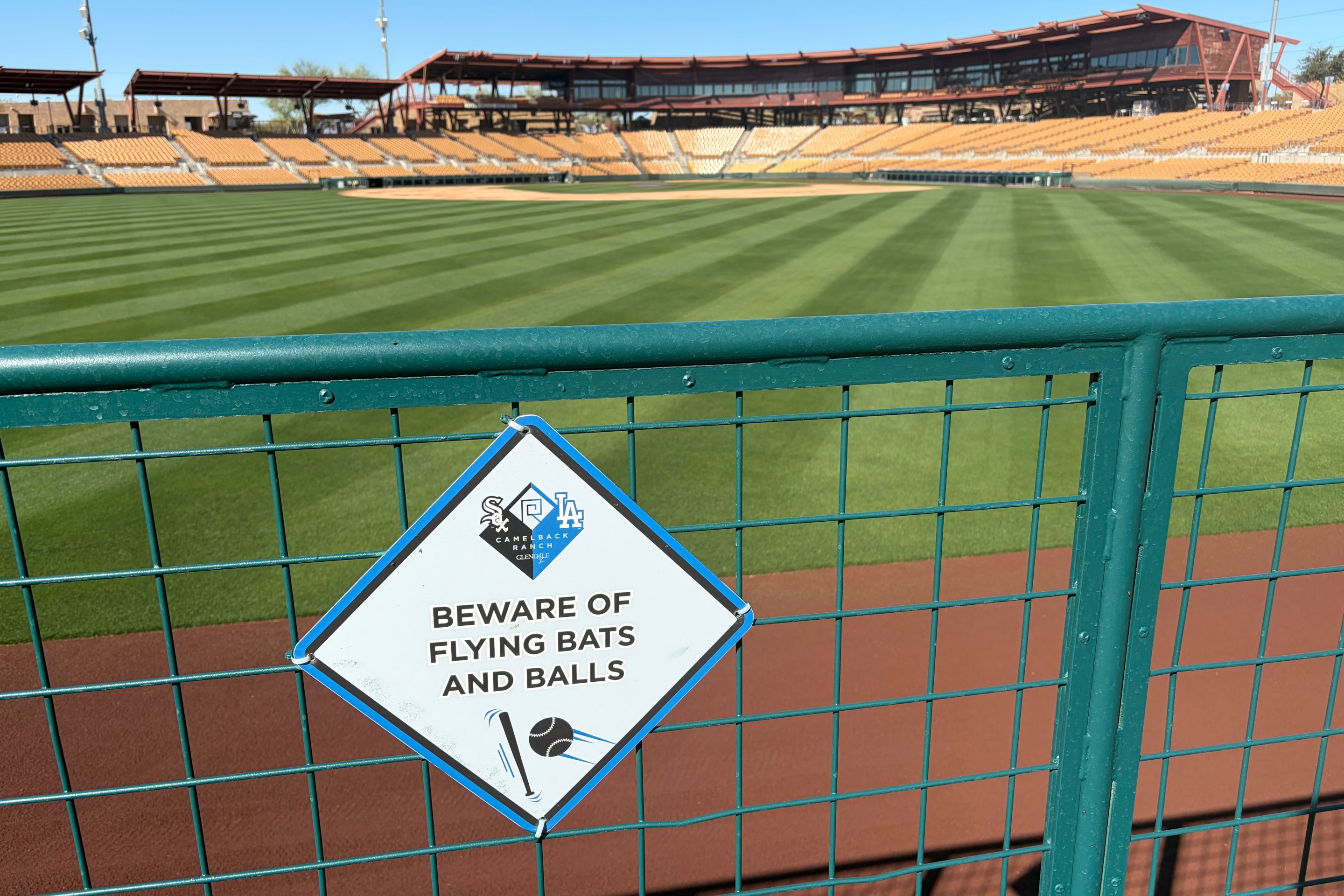Among the frustrations that White Sox pitching prospect Tanner McDougal has endured in his professional career, it was relatively minor. It paled in comparison to having his first full year in the organization spent rehabbing from Tommy John surgery rather than pitching. Even now, a year and two minor league levels removed, getting demoted to Low-A Kannapolis last July still conjures more annoyance in his voice than the streak.
But four years ago, McDougal struck out the side in a single inning of work in a complex league game; his first professional inning after being selected in the fifth round and signed for $850K bonus (more than a half million over slot). The ACL White Sox blanked the ACL Dodgers 2-0 that day, and McDougal was credited as the winning pitcher.
In the next 63 outings that followed, 62 of them starts, McDougal did not finish the day with a W next to his name.
"It's always on your radar, in the back of your mind, because it's like, holy crap, it's been forever," McDougal said in a phone call.
But for most of his four years in the White Sox organization, McDougal has had bigger fish to fry. The 14.3 percent walk rate he posted at Kannapolis in 2023 inspired more muted concern, as it was his first year back from TJ and his stuff came roaring back, with spikes into the high-90s. But upon getting demoted back to Kannapolis last July due to his 6.85 ERA in High-A, McDougal was still walking hitters at a 14.4 percent clip and piling up pitches to the point that he was averaging only slightly more than four innings per outing.
Even in watching him in August at Kannapolis, McDougal could simultaneously look entirely too talented for opposing hitters to trouble him, and too prone to getting his own way to be ready to advance. In the first inning I saw him pitch, he hit two batters, and then a fielding error helped tip the balance for a two-run inning before McDougal got visibly fed up and hit 98 mph repeatedly while striking out the last two hitters of the frame. These sorts of swings between the worst baseball he was capable of, before flashes of talent that none of his teammates could match, typified his frustrating 2024 season.
"It would fall off at some point, and it would take me one or two starts to lock back in, and you can't have that in pro ball," McDougal said. "Nobody wants to get sent down. It sucks. That was one of the harder things that I've had to deal with ever playing baseball."
Sometimes players get credit for maturing or taking things more seriously than ever, as White Sox staffers have said of McDougal this year, and the loaded compliment takes them by surprise. But speaking in the wake of striking out 50 hitters in 37⅓ innings over his last seven starts, holding opposing hitters to a .209/.287/.254 batting line over that span, and if anything accelerating upon earning a coveted promotion to Double-A Birmingham, McDougal embraces the narrative that his 2025 represents a new level of stringency to his plan.
For the first time, he bookended his offseason with week-long visits to the well-renowned Cressey Sports Performance facility in Florida, a popular winter training home for dozens of big leaguers. In between trips, McDougal spent the rest of the winter carrying out a plan customized for his stout, 6-foot-5-inch frame. McDougal credits the process for why he feels he's recovering from outings better than ever and feeling more consistent, as he's posting his career's first single-digit walk rate while dominating his first three Double-A starts (15.1 IP, 12 H, 3 ER, 6 BB, 23 K). This more robust investment into how his body most efficiently works made McDougal all the more open to when Brian Bannister started discussing the ideal plane of rotation for his delivery during spring bullpen sessions.

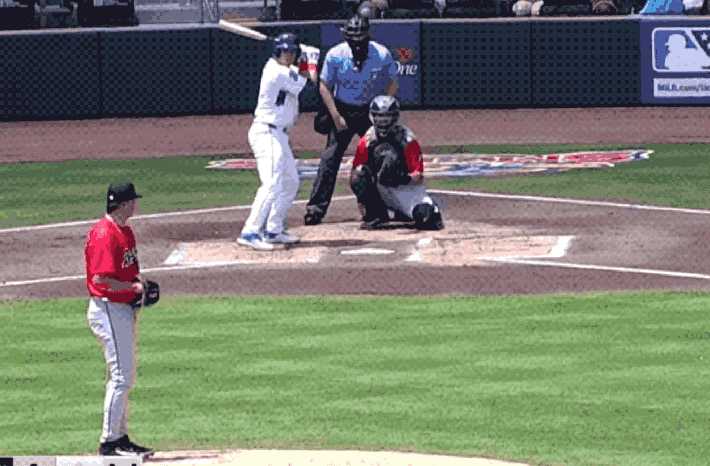
"He's the smartest pitching mind I've ever worked with in my entire life, it's truly a blessing to work with that guy," McDougal said. "Once I got drafted, had TJ, came back, we went through a little bit of a change in my mechanics. And I don't think my body moved in the way that we were trying to move. [Bannister] pushed me in the direction of if you spin on the correct axis, everything is going to fall in line."
In keeping with theme of Bannister concepts, McDougal became more supination-oriented after undergoing TJ. He already attracted attention at the 2021 Draft Combine for spinning a 3,000 RPM breaking ball, and his post-surgical wrist orientation made McDougal even more inclined to rip and spin. As a result, he lost some feel for his changeup, the secondary pitch he grew up throwing the most because his father -- a former professional pitcher himself -- restricted him from spinning breaking balls until he was old enough to handle it. McDougal throws an unreal over-the-top curveball that plays to both sides, and found a new grip at Cressey that has seemingly ended his search for a consistent high-80s slider, so his changeup use has bottomed out for the best of reasons.


"Mainly, the curveball and slider are so good that there's no reason to throw the fourth-best pitch in my arsenal as much as I throw the other two," said McDougal, cutting to the chase.
But even White Sox personnel who thought in spring that another few months of poor command might see McDougal routed to the bullpen, argued for such on the premise that his stuff was undeniable -- above-average velocity paired with elite spin talent. Even if his over-the-top delivery means McDougal's fastball has a downhill plane and he'll probably need to be spin-heavy at the highest level, he wouldn't center any tweak to his arsenal as the reason for his ascendant season.
The stuff has always been there, as has McDougal's confidence that he can be an impact pitcher at the major league level. What he has found more important is accepting that, at just 22 years of age, it's not an indictment that he's not quite there yet.
"Unfortunately, pro ball has taught me a lot about patience," McDougal said. "When I got here, I wasn't very patient, and now I've learned how to be patient and play where my feet are. It's very hard to look in the future or look behind you, or worry about what other people are doing. Because at the end of the day it's your career and not anybody else's. You've got to take control of your career."
"We've done a really good job with the sports psychologists helping us deal with the ups and downs of pitching," McDougal continued. "You've got one out and the bases are loaded, how are you going to reset your breathing so you can be the best that you can possibly be in that situation. And that's one of the things that we worked on in the early camps. That's one of the things that helped me take my game to the next level this year. I learned how to mask my emotions, and cope with my emotions pitch to pitch, rather than inning to inning or game to game."
With that approach in mind, McDougal has developed plenty of standards for how to evaluate his own performance. Whether it's focusing on his pitch execution or just rationalizing that his job is to "keep my guys in the game to the best of my ability," the vagaries that go into getting a pitching win in the minors aren't breaking through to someone who's learning to be more zen about more significant things.
But in his 65th and most recent career outing, McDougal happened upon a breakthrough in the healthiest of ways. He struck out eight in five scoreless innings on 83 pitches, his third straight excellent start for the Barons, and departed with a 2-0 lead. Because his teammates did their jobs too, notably Zach Franklin putting down a ninth-inning rally to preserve a 2-1 margin, McDougal finally found himself getting an arbitrary form of credit that he'd been pitching well enough to deserve. And he wouldn't have wanted it otherwise.
"Once I came out of the game I realized, 'Oh, this could be a thing,' and then it happens and it's awesome, great, and it's kind of like a breath of fresh air. But at the same time, I wasn't like 'I need to get a win,'" said McDougal, who is seeing more meaningful progress from last year.
"Getting called up [to Birmingham] was definitely a sigh of relief, but at the same time, I didn't deserve to be in Double-A last year. I didn't throw the ball well. So I understood both sides of it. I understood you've gotta be pretty good to get here. And it's not just something that's given, you've gotta earn it. So that was my thing coming into the year: I'm gonna earn my keep."
